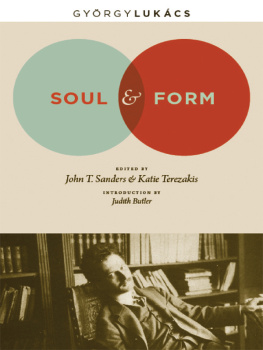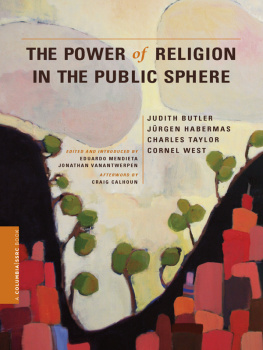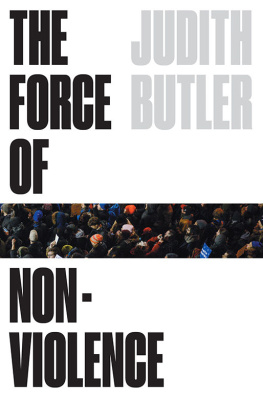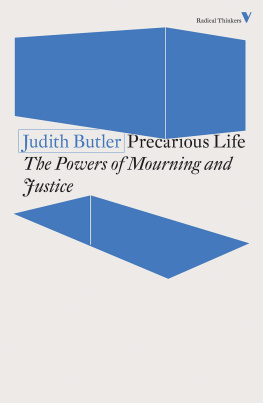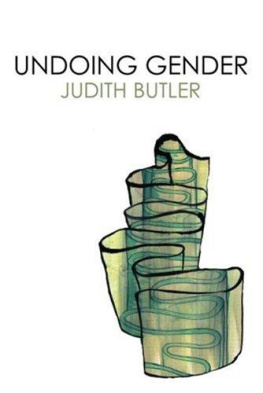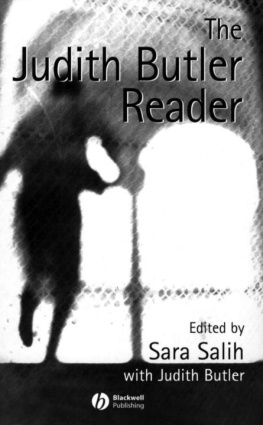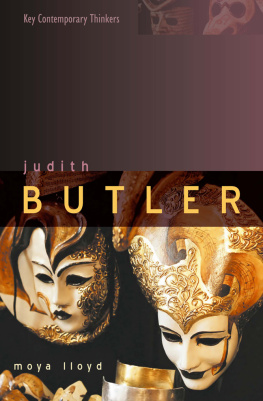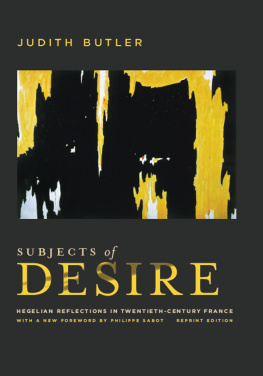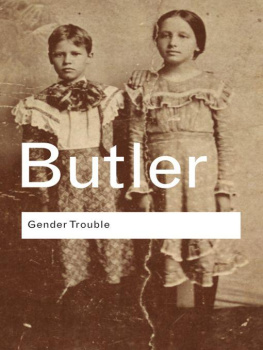SOUL & FORM
COLUMBIA THEMES IN PHILOSOPHY
COLUMBIA THEMES IN PHILOSOPHY
AKEEL BILGRAMI, Johnsonian Professor of Philosophy,
Columbia University, series editor
Columbia Themes in Philosophy is a new series with a broad and accommodating thematic reach as well as an ecumenical approach to the outdated disjunction between analytical and European philosophy. It is committed to an examination of key themes in new and startling ways and to the exploration of new topics in philosophy.
EDWARD SAID , Humanism and Democratic Criticism
MICHAEL DUMMETT , Truth and the Past
JOHN SEARLE , Freedom and Neurobiology:
Reflections on Free Will, Language, and Political Power
DANIEL HERWITZ and MICHAEL KELLY , eds., Action, Art, History:
Engagements with Arthur C. Danto
GYRGY LUKCS
SOUL & FORM
TRANSLATED BY
Anna Bostock
EDITED BY
John T. Sanders & Katie Terezakis
WITH AN INTRODUCTION BY
Judith Butler
COLUMBIA UNIVERSITY PRESS NEW YORK
COLUMBIA UNIVERSITY PRESS
Publishers Since 1893
cup.columbia.edu
New York Chichester, West Sussex
Copyright 2010 Columbia University Press
All rights reserved
E-ISBN 978-0-231-52069-0
Library of Congress Cataloging-in-Publication Data
Lukcs, Gyrgy, 18851971.
[Llek s a formk. English]
Soul and form / Gyrgy Lukcs; translated by Anna Bostock; edited by John T. Sanders and Katie Terezakis; with an introduction by Judith Butler.
p. cm. (Columbia themes in philosophy, social criticism, and the arts)
Translation from the German ed. (1971) of the work first published in Hungarian under title: A lkek s a formk.
Includes bibliographical references and index.
ISBN 978-0-231-14980-8 (cloth: alk. paper)ISBN 978-0-231-14981-5 (pbk.: alk. paper)ISBN 978-0-231-52069-0 (e-book)
1. Marxist criticism. 2. LiteratureAesthetics. 3. Literature, ModernHistory and criticismTheory, etc. I. Bostock, Anna. II. Sanders, John T. III. Terezakis, Katie, 1972 IV. Title. V. Series.
PN45.L713 2009
801'.93dc22
2009020202
A Columbia University Press E-book.
CUP would be pleased to hear about your reading experience with this e-book at .
References to Internet Web sites (URLs) were accurate at the time of writing. Neither the author nor Columbia University Press is responsible for Web sites that may have expired or changed since the book was prepared.
DESIGN BY MARTIN N. HINZE
CONTENTS
Gyrgy Lukcs first published the original Hungarian language version of Soul and Form in 1910. It included eight of the ten essays later to be published in subsequent German, Italian, and English editions. This current centennial edition adds to the mix one additional Lukcs essay, On Poverty of Spirit, written at roughly the same time as the others and bearing a vital relationship to them. Finally, in this edition we have added to the Lukcs material an important introductory essay by Judith Butler, one of Americas leading philosophical voices in cultural studies and literary criticism, as well as a concluding essay, by Katie Terezakis, which draws out connections between the Lukcsian concept of form and its elaboration and critique in Lukcss own work and in works of critical theory and philosophy up to the present.
Lukcs was born in Budapest on April 13, 1885. He began his higher academic studies in Budapest, but had moved on to Berlin by 1906, where he received his doctorate. His earliest interests appear to have been theatrical, leading ultimately to the publication, in 1911, of The History of the Development of Modern Drama. After about 1908, however, Lukcs wrote a series of essays that he regarded as contributions to ongoing debate on literary theory. The most important of these are collected here, in the current edition of Soul and Form, and in an important essay, Aesthetic Culture, which appeared originally in 1910 and was subsequently published as a small book in 1913.
After 1917, the seismic changes in Lukcss immediate political and social world led him to identify more and more with Marxism. He committed himself fully in 1918 when he joined the Communist Party of Hungary, and he served briefly as deputy to the commissar for education in the government of the Hungarian Soviet Republic during its brief control of the country from March through August of 1919. In the years after the collapse of the Soviet Republic, Lukcs devoted himself to working out the details of a coherent Leninist philosophy, culminating notably in the publication of his History and Class Consciousness in 1923 and Lenin: A Study on the Unity of His Thought in 1924. In these works he is widely regarded as having laid the base for what later became designated (in the first instance, by Maurice Merleau-Ponty) as Western Marxism, to distinguish it from Soviet Marxism.
Returning again to literary theory in later years, Lukcs had clearly been influenced deeply by his social and political ruminations and experience. His new work, as evident in Realism in the Balance, published in 1938, amounted to an attack on modernism as incapable of addressing realityand even to a critique of the more general notion of art as evolving through a series of movements of one kind or another. The realism defended in this work was fully Marxian and fully anticapitalist, conceiving capitalism as vastly more than an economic system, but instead as a closed integration of economic, social, and ideological elements that exerts its influence on humanity quite independently of consciousness and whose influence is pervasive. The objective of literature, Lukcs thought, should be to highlight the difference between the consciousness of its characters and the reality that stands in de pen dent of them. The question of the relationship between this later position and the thought of the young Lukcs, represented by the essays in this volume, is taken up in both Butlers introduction and Terezakiss afterword.
Lukcs remained politically active, participating in 1956 in the ten-day anti-Stalinist communist Hungarian government of Imre Nagy and nearly sharing Nagys fate in the aftermath (Nagy was executed after secret trials in June of 1958). Later, returning to Budapest, Lukcs publicly renounced his antiestablishment views and remained within the Communist Party until his death in 1971 at the age of eighty-six. By that time, though, the partys view of the Stalin era had changed significantly, and Lukcs could freely make his point, in an interview just before he died, that Stalin, unfortunately, was not a Marxist. The essence of Stalinism lies in placing tactics before strategy, practice above theory. The bureaucracy generated by Stalinism is a tremendous evil. Society is suffocated by it. Everything becomes unreal, nominalistic. People see no design, no strategic aim, and do not move. We must learn to connect the great decisions of popular political power with personal needs, those of individuals.
There may be no livesno oeuvresthat touch more broadly on so many diverse arenas central to the history of the twentieth century than that of Gyrgy Lukcs, and as we gain a little distance, a little perspective on that centuryon its influence on usit is fitting that we reexamine that life and that work.
Thanks are due especially to Silvia Benso and Keith Sanders for assisting us with the translation of passages in Italian and French and to Victoria Varga for editorial help. We are grateful also to the Rochester Institute of Technology College of Liberal Arts Faculty Research Fund for financial support for this project. Finally, we wish to thank Lydia Goehr and Gregg Horowitz, editors of the Columbia University Press series Columbia Themes in Philosophy, Social Criticism, and the Arts, of which this volume is a part, as well as the staff at CUP, whose consideration and understanding was consistently offered to us.


